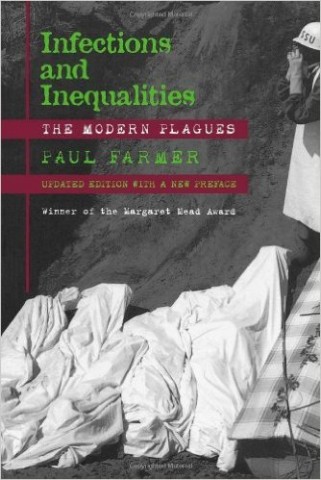Evidence is important. We want to know what we are doing works (or doesn't work). But, what happens when particular types of evidence are required to get funding, and what impact does this have on the types of work that is supported by donors? These questions are engaged with in the edited volume "The Politics of Evidence and Results in International Development: Playing the Game to Change the Rules?" (2015) edited by Rosalind Eyben, Irene Guijt, Chris Roche and Cathy Shutt. The book emerged out of a conference and was supported by an on-going blog conversation (one that has died of recent). For anyone concerned about the how evidence could be political, the experiences presented by a range of authors in this book is well worth reading. Alternatively, it would be useful for advocates who believe that RCTs are the only means by which we can determine what we ought to do in development activity.
One of the values of edited volumes is that multiple views can be presented in a single book. Some contributors are critical of the ways in which evidence (and specifically shifts such as the emphasis on "value for money") has been politicized and negatively affected international development activity. Others recognize the benefits that the newfound emphasis on evidence offers. For example: "Love it or hate it, engaging with VfM [Value for Money] is encouraging healthy and long-overdue debates that force practitioners to make explicit the reasons why we think we offer value and the values we use to asses that." (p. 74) In addition to seeing where the conversation about evidence adds benefit, it was further argued that such a shift creates opportunities: "Nevertheless, there is room to manoeuver. It can offer power-aware practitioners opportunities to increase accountability to citizens and each other; VfM [Value for Money] also creates possibilities to influence discourse about links between value and money and to debate what kind of development is valued." (p. 58)
Although human rights did not play a key role in the book, I believe that one of the most important conflicts in the debates around cost effectiveness and value for money is that with human rights. At the outset of the book this was alluded to: "The number of agencies, particularly international NGOs, using rights language has continued to increase, but the contradiction between rights-based approaches and their political and process approach to intangible goals such as empowerment and the increasing popularity of results-based management has become very apparent. It is harder to manage support for transformational approaches when one is required to report tangible, easy-to-measure changes" (p. 9) However, the issue of human rights was not taken up in detail by any of the contributors. In fact, one notes the absence of human rights: "focusing on unit cost and things that can be measured misses the importance of politics, relationships and networks in creating exponential value through difficult-to-measure change… linear, results-based management thinking and associated VfM [Value for Money] assessment techniques may have limited use for complex transformational initiatives." (p. 69) To these concerns, I have raised that of human rights and justice. If donors emphasize value for money and impact per dollar, we tend to focus our efforts – by necessity – on the easiest to reach, but not necessarily those most in need, or those most deserving (based upon local or regional inequality).
Accountability is important. But, accountability to whom? Organizations tend to focus on accountability to donors. But, little accountability to those for whom organizations claim to work is done. One of the chapters in this volume presents an interesting example of an organization that grappled with this question, and largely, where those efforts failed: "My central proposition is that, despite some significant efforts by the organization to become more accountable to those is sought to benefit, this agenda never became 'mission critical.' In part this was because of other organizational priorities becoming more pressing – particularly as growth in funding stagnated – and in part because we failed to recognize and align the many different perspectives on accountability that existed in the agency." (p. 80) As this book highlights, I believe we need to be far more critical not only about what evidence is demanded, but for whom evidence is prioritized.


